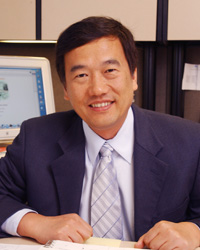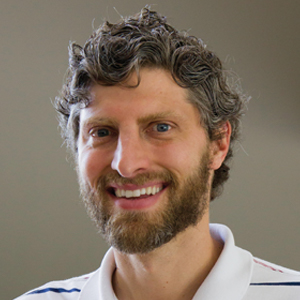Wang lauded as ‘one of the most highly original, bold and creative scientists’
Xiaodong Wang, a former Howard Hughes Medical Institute investigator now at the National Institute of Biological Sciences in Beijing, has been named the winner of the American Society for Biochemistry and Molecular Biology’s Merck Award.

Wang received the award for his discoveries concerning the mitochondrial basis of apoptosis, detailing the sequence of steps involved and showing that both effectors and inhibitors of programmed cell death are housed in this organelle.
Professor Xiao-Fan Wang from the Duke University Medical Center hailed Xiaodong Wang’s lab for “identifying almost all the major cellular components that mediate the apoptotic signal.”
By working out the steps of the apoptotic pathway and identifying the key players, Wang also generated a plethora of drug targets currently being explored by several pharmaceutical companies, including Joyant Pharmaceuticals, which he co-founded in 2005.
For Wang, who recently moved to China to serve as director of the national institute in Beijing, the award carries a special meaning. “It is a great feeling to know that although I am gone, I am not forgotten,” he said.
Wang came to the United States from China in 1985 to pursue his Ph.D. in biochemistry at the University of Texas Southwestern Medical Center at Dallas. After graduating in 1991, he stayed on in the lab of Nobel laureates Mike Brown and Joe Goldstein and worked on sterol regulation of gene expression. A brief appointment at Emory University was not enough to keep Wang from returning in 1996 to UT-Southwestern, where he worked until moving this past year back to China.
In a joint nomination, Brown and Goldstein praised Wang as “one of the most highly original, bold and creative scientists in the world today.” They continued: “His influence and impact on the field of biochemistry and molecular biology have been wide and deep.”
Wang will received his award during the Experimental Biology 2012 conference in San Diego, and delivered an award lecture.
The ASBMB-Merck Award recognizes outstanding contributions to research in biochemistry and molecular biology. It provides a plaque and a $5,000 purse, and it covers transportation and expenses of the recipient and spouse to attend the ASBMB annual meeting and present a lecture.
Enjoy reading ASBMB Today?
Become a member to receive the print edition four times a year and the digital edition monthly.
Learn moreGet the latest from ASBMB Today
Enter your email address, and we’ll send you a weekly email with recent articles, interviews and more.
Latest in People
People highlights or most popular articles

2026 ASBMB election results
Meet the new Council members and Nominating Committee member.

Simcox wins SACNAS mentorship award
She was recognized for her sustained excellence in mentorship and was honored at SACNAS’ 2025 National Conference.

From humble beginnings to unlocking lysosomal secrets
Monther Abu–Remaileh will receive the ASBMB’s 2026 Walter A. Shaw Young Investigator Award in Lipid Research at the ASBMB Annual Meeting, March 7-10 in Washington, D.C.

Chemistry meets biology to thwart parasites
Margaret Phillips will receive the Alice and C. C. Wang Award in Molecular Parasitology at the ASBMB Annual Meeting, March 7-10 in Washington, D.C.

ASBMB announces 2026 JBC/Tabor awardees
The seven awardees are first authors of outstanding papers published in 2025 in the Journal of Biological Chemistry.

Decoding how bacteria flip host’s molecular switches
Kim Orth will receive the Earl and Thressa Stadtman Distinguished Scientists Award at the ASBMB Annual Meeting, March 7–10, just outside of Washington, D.C.

